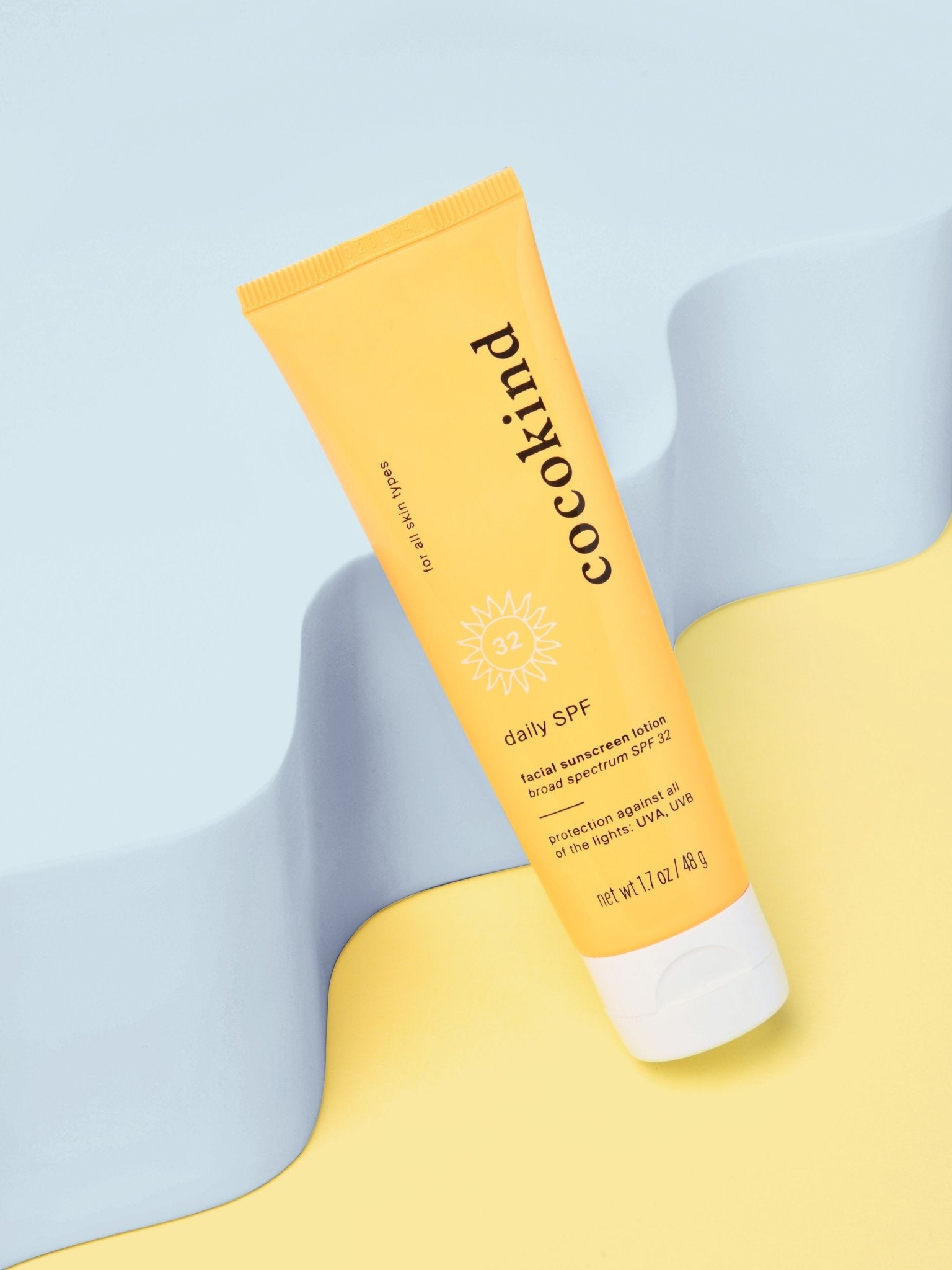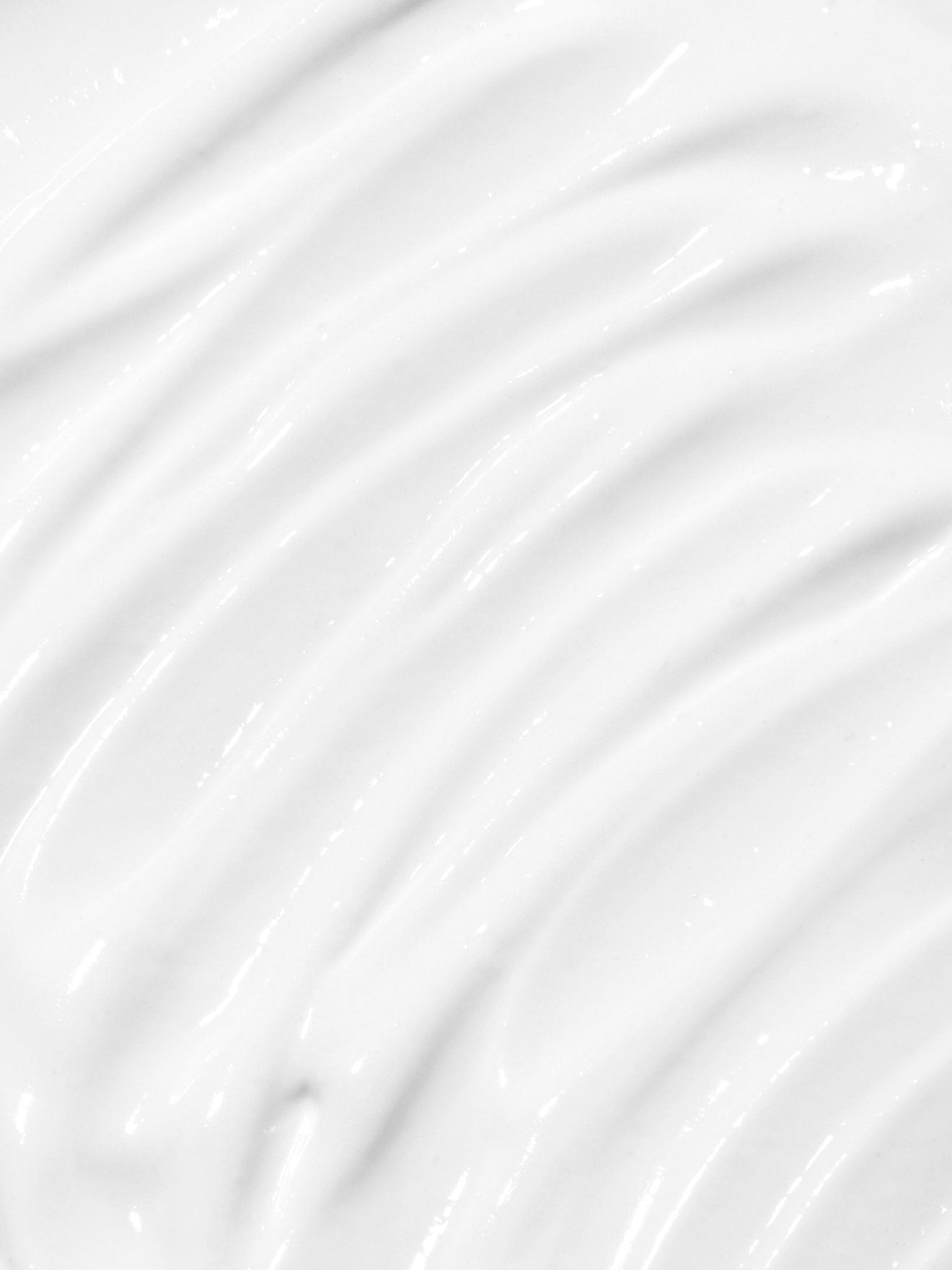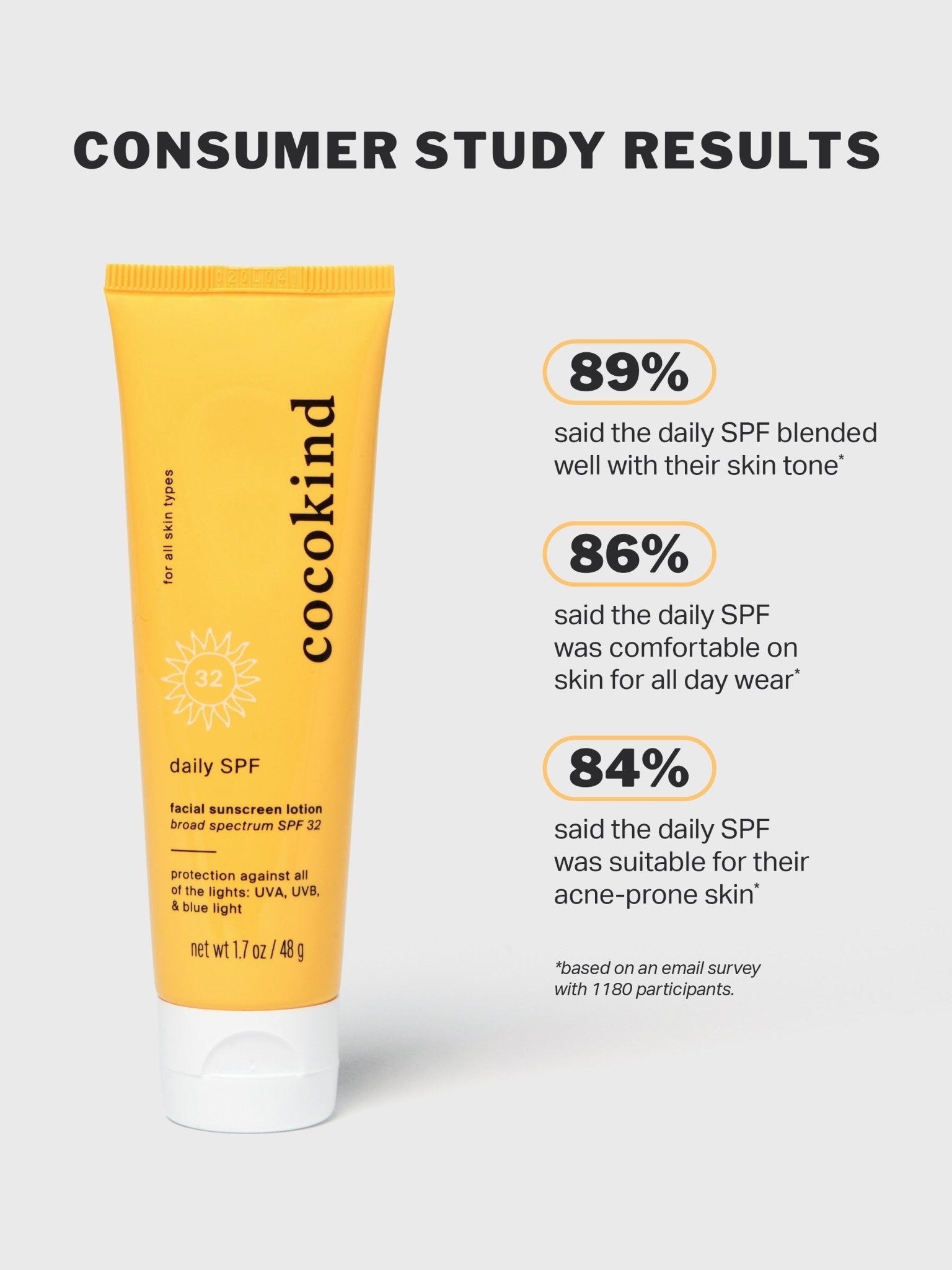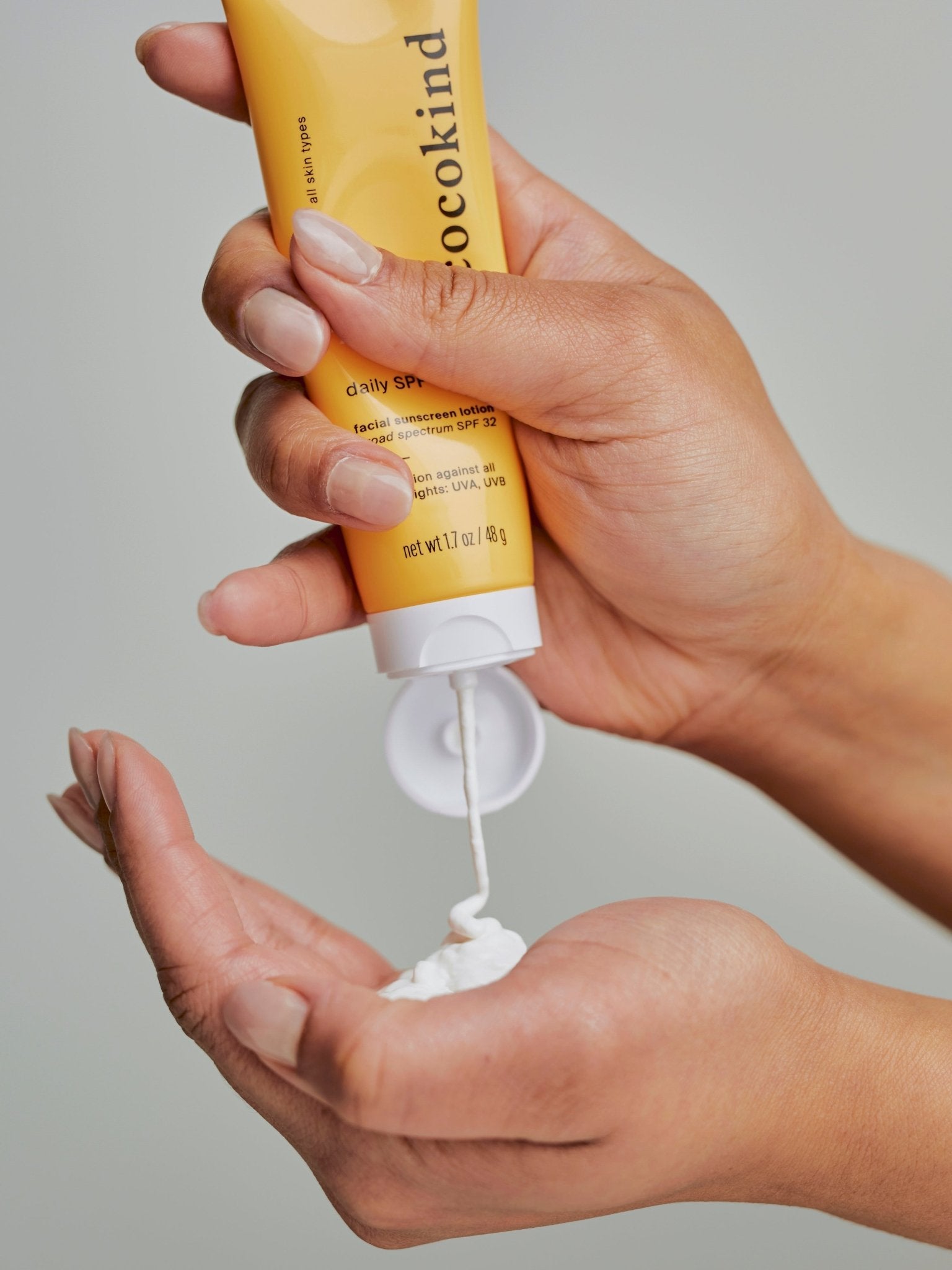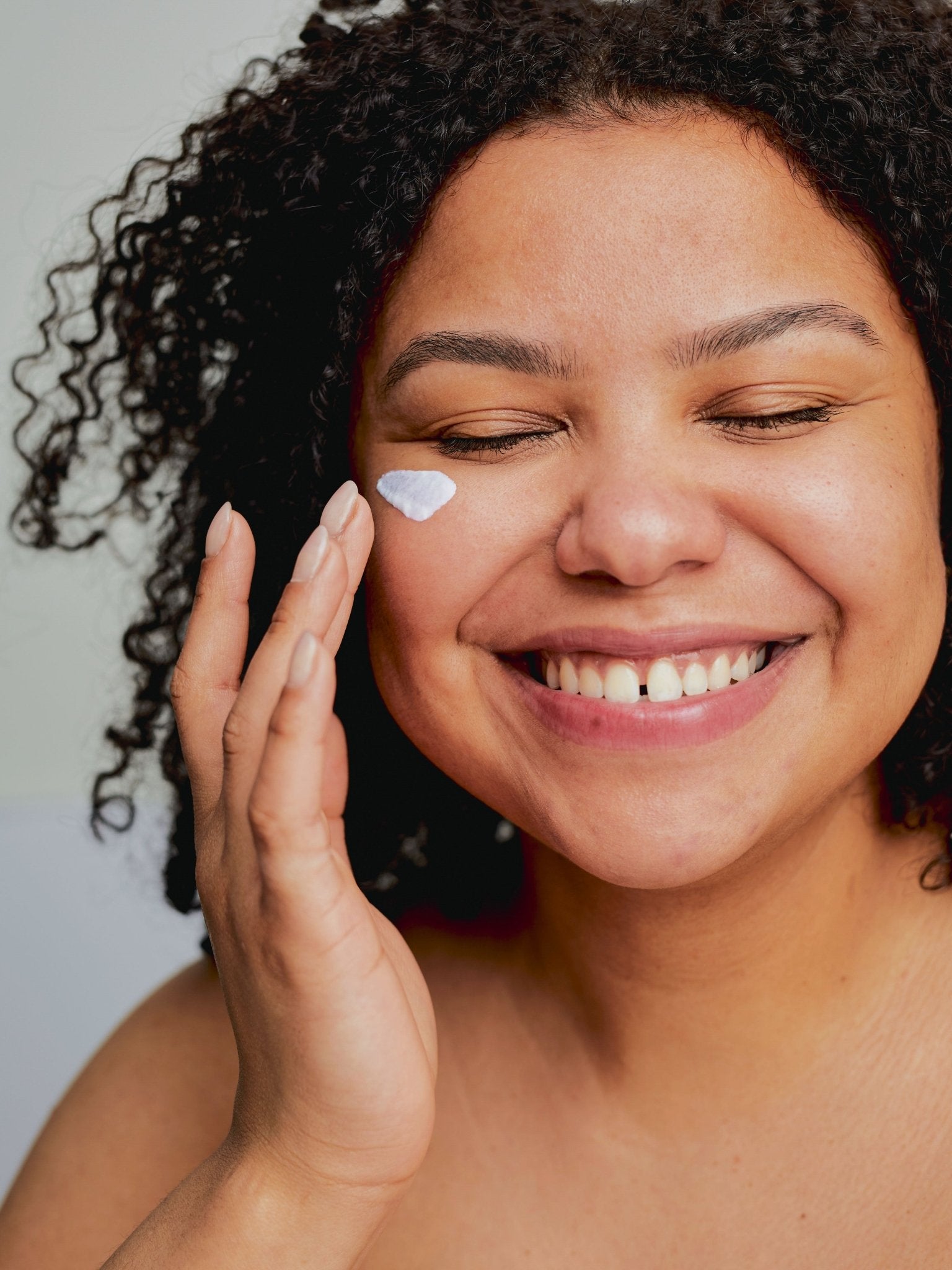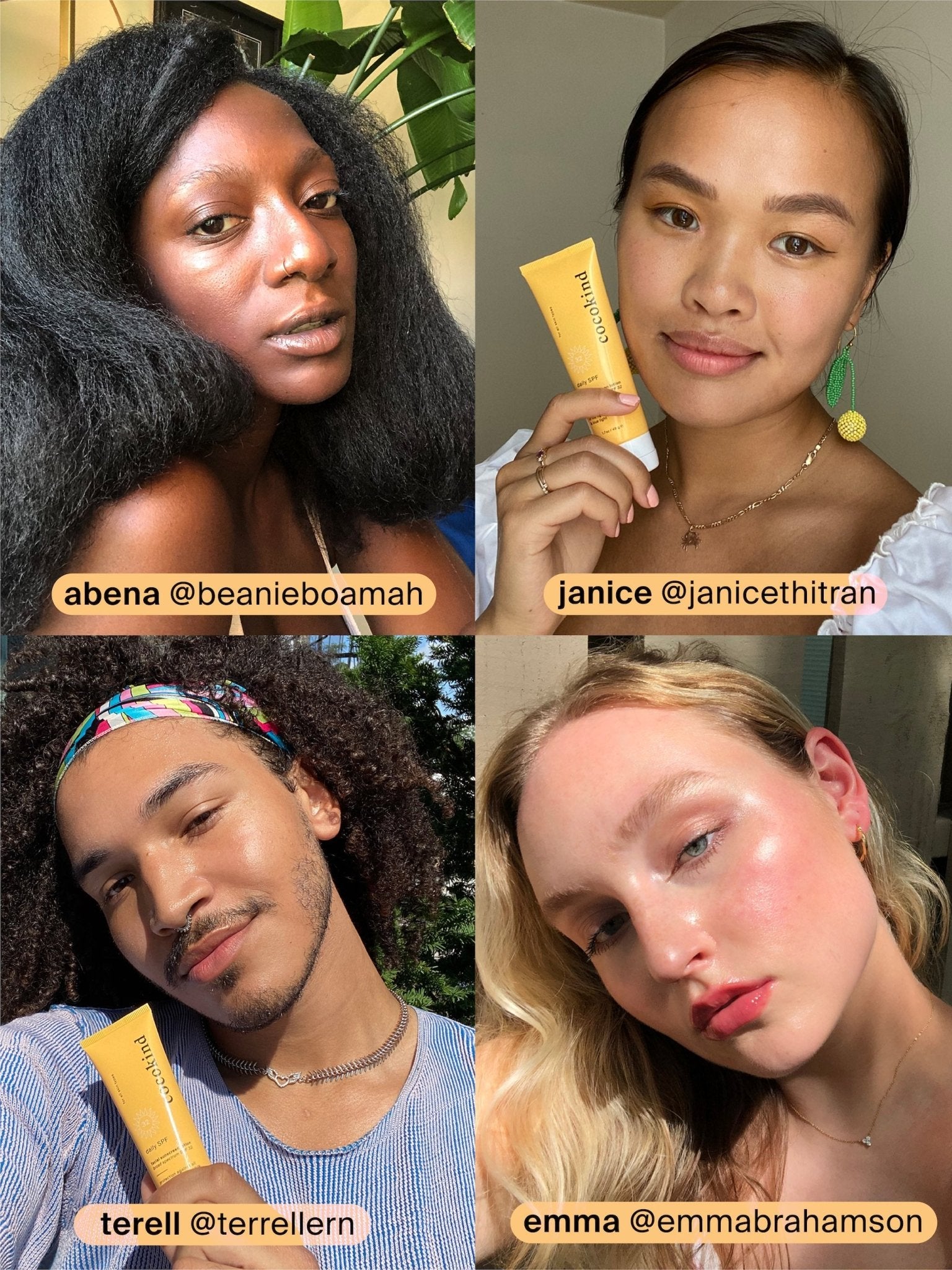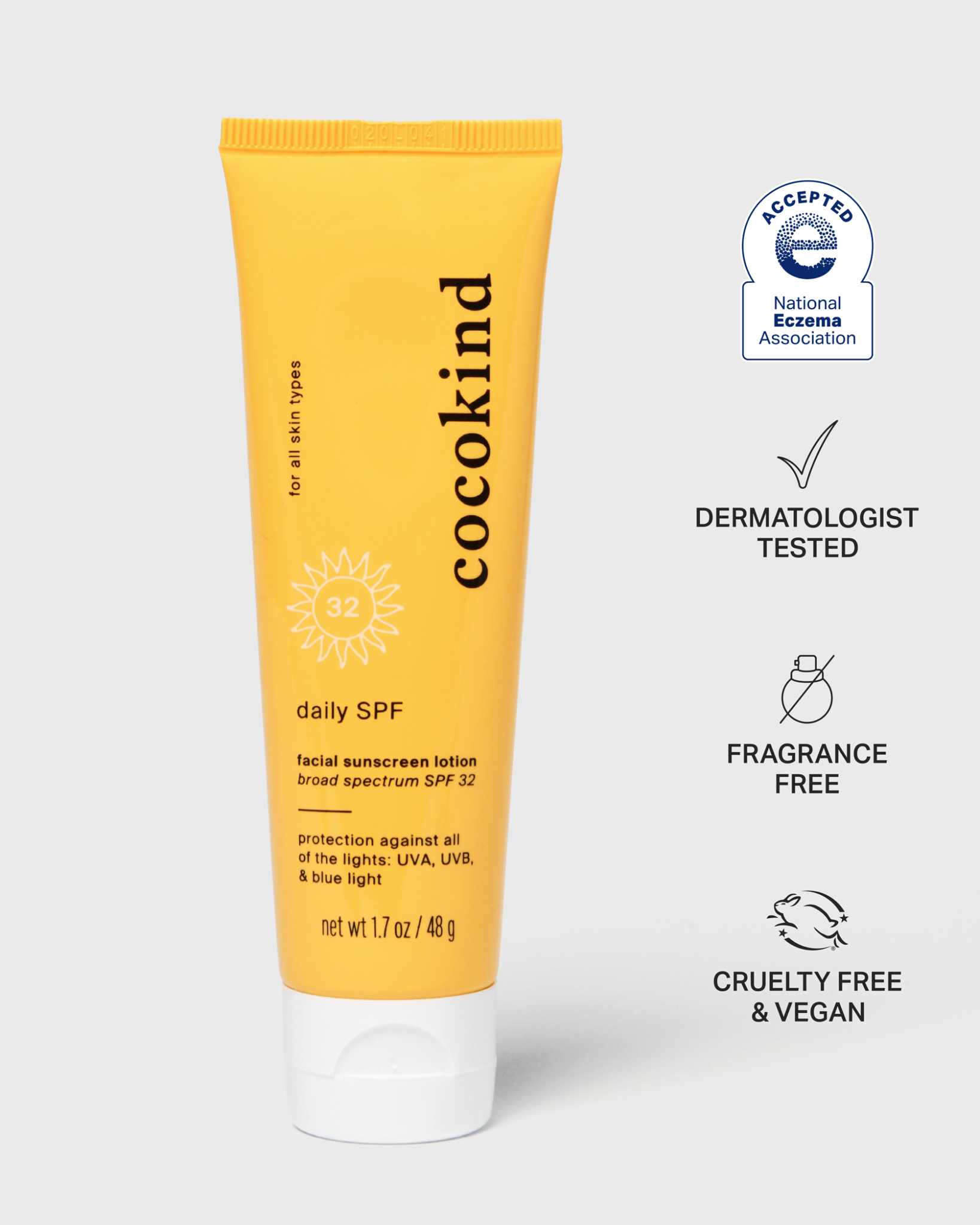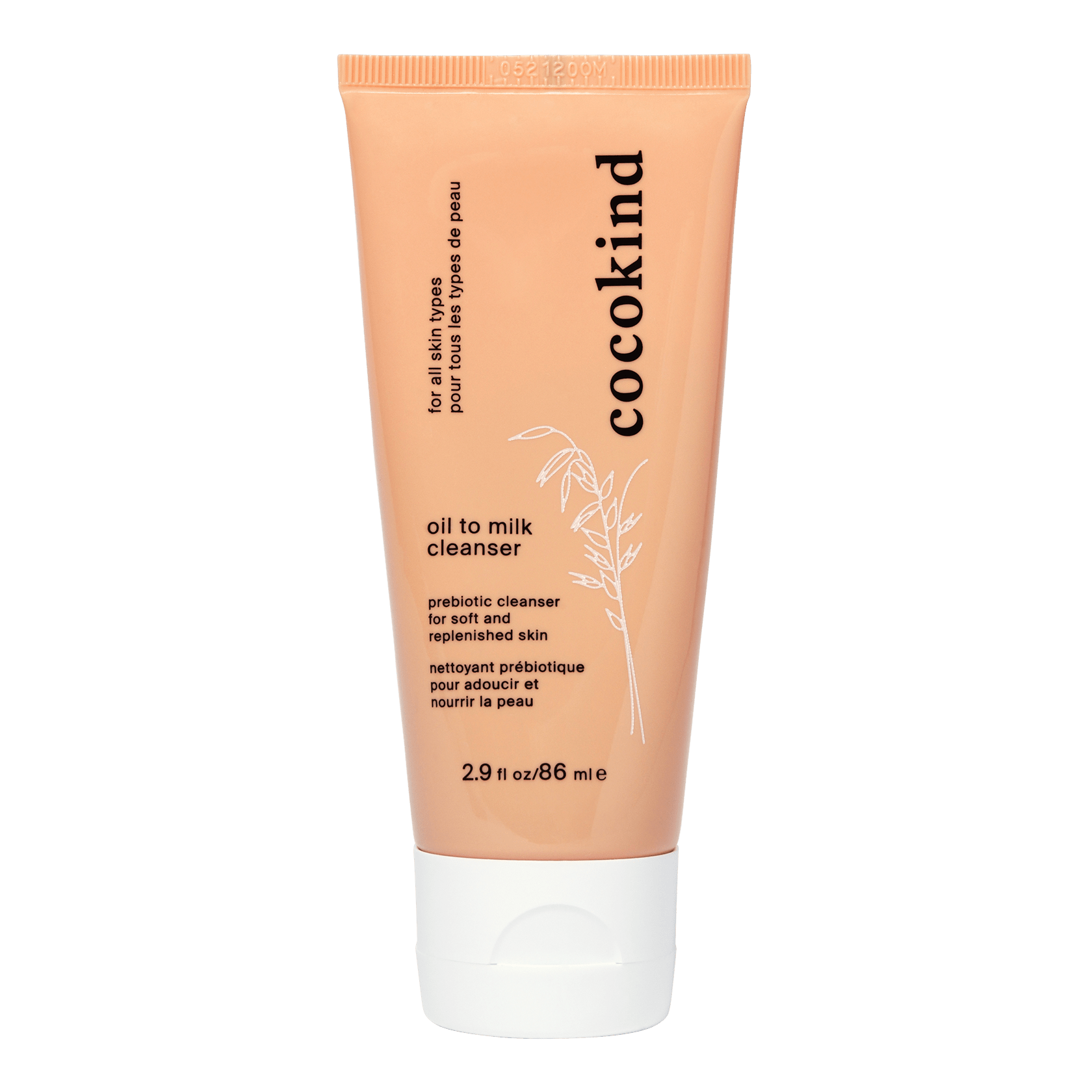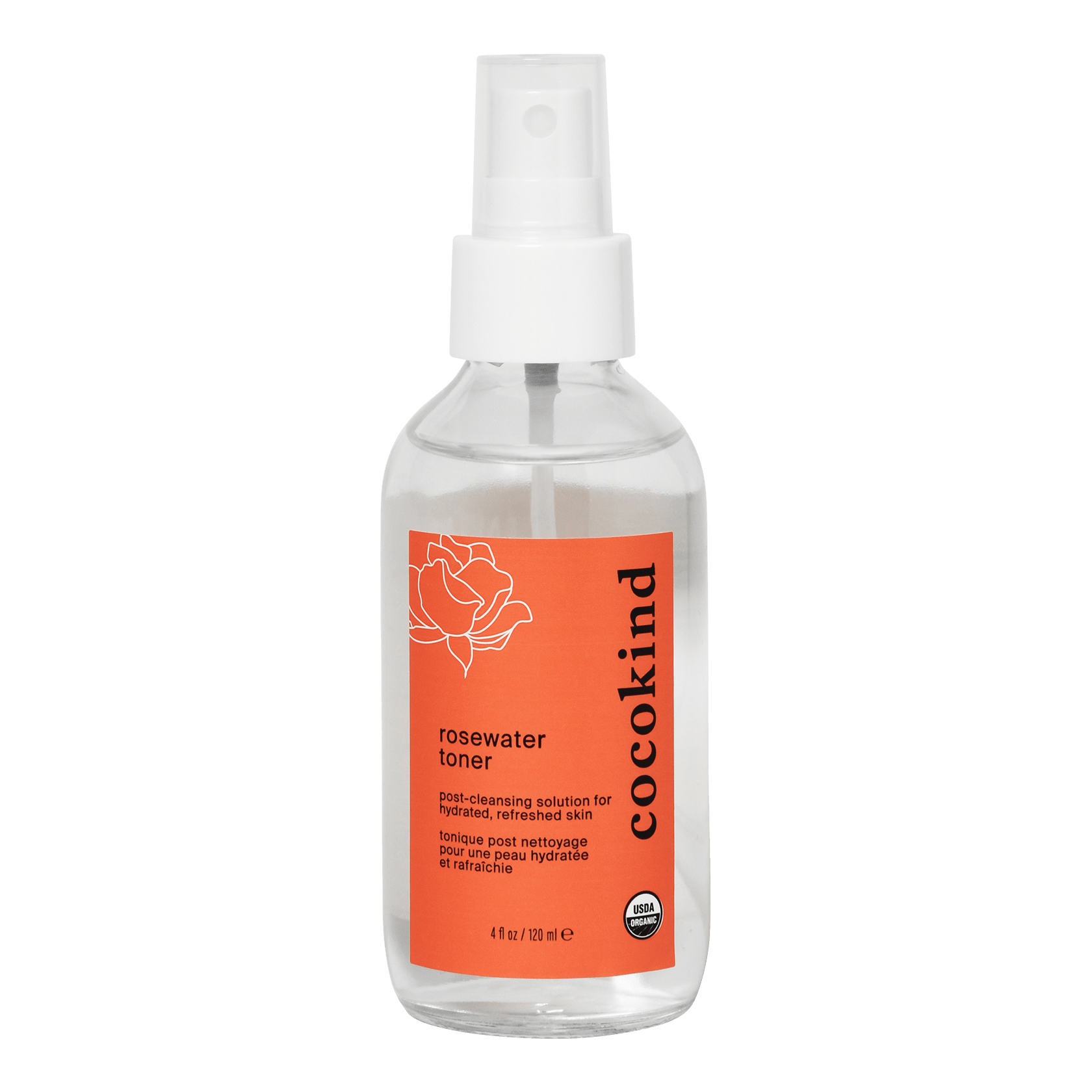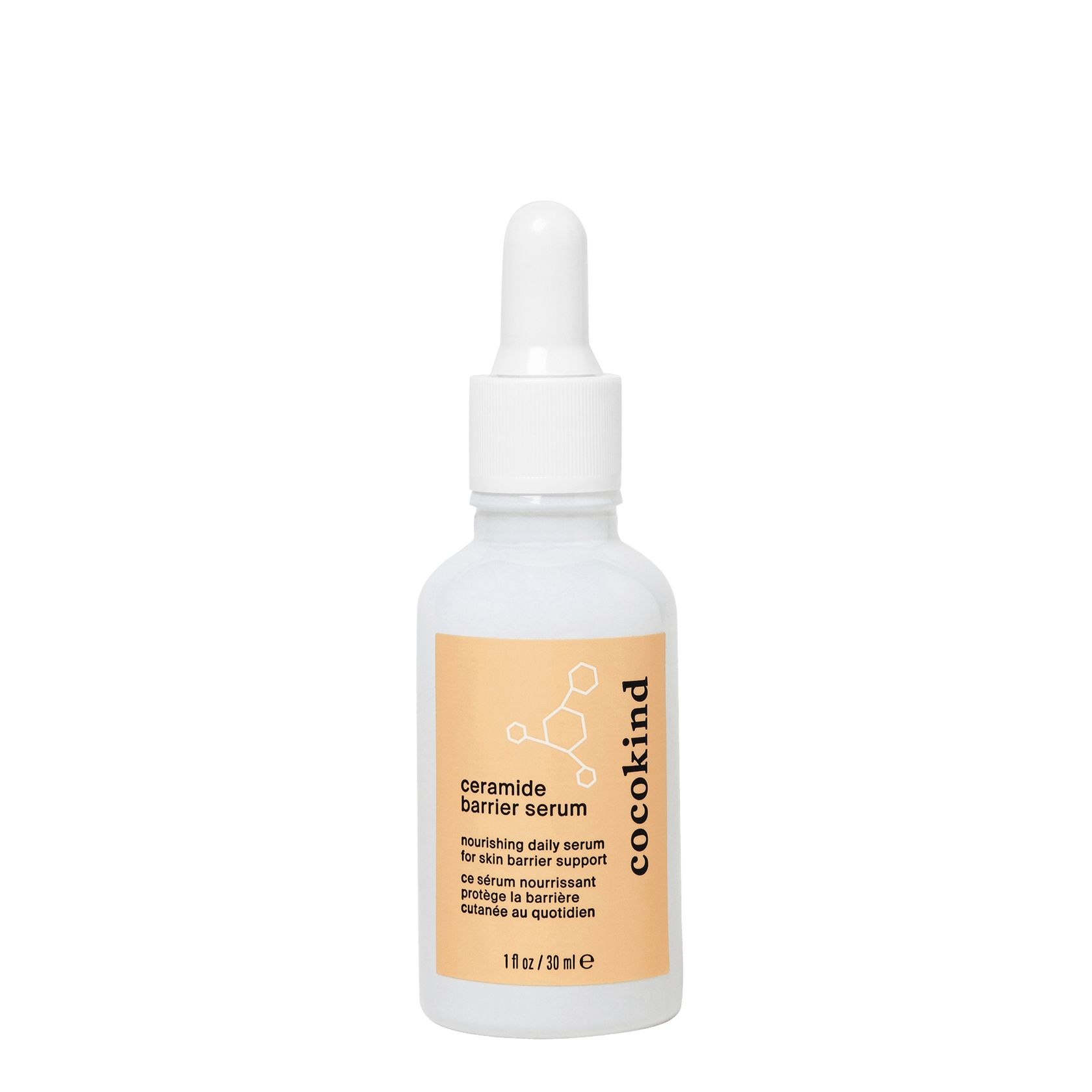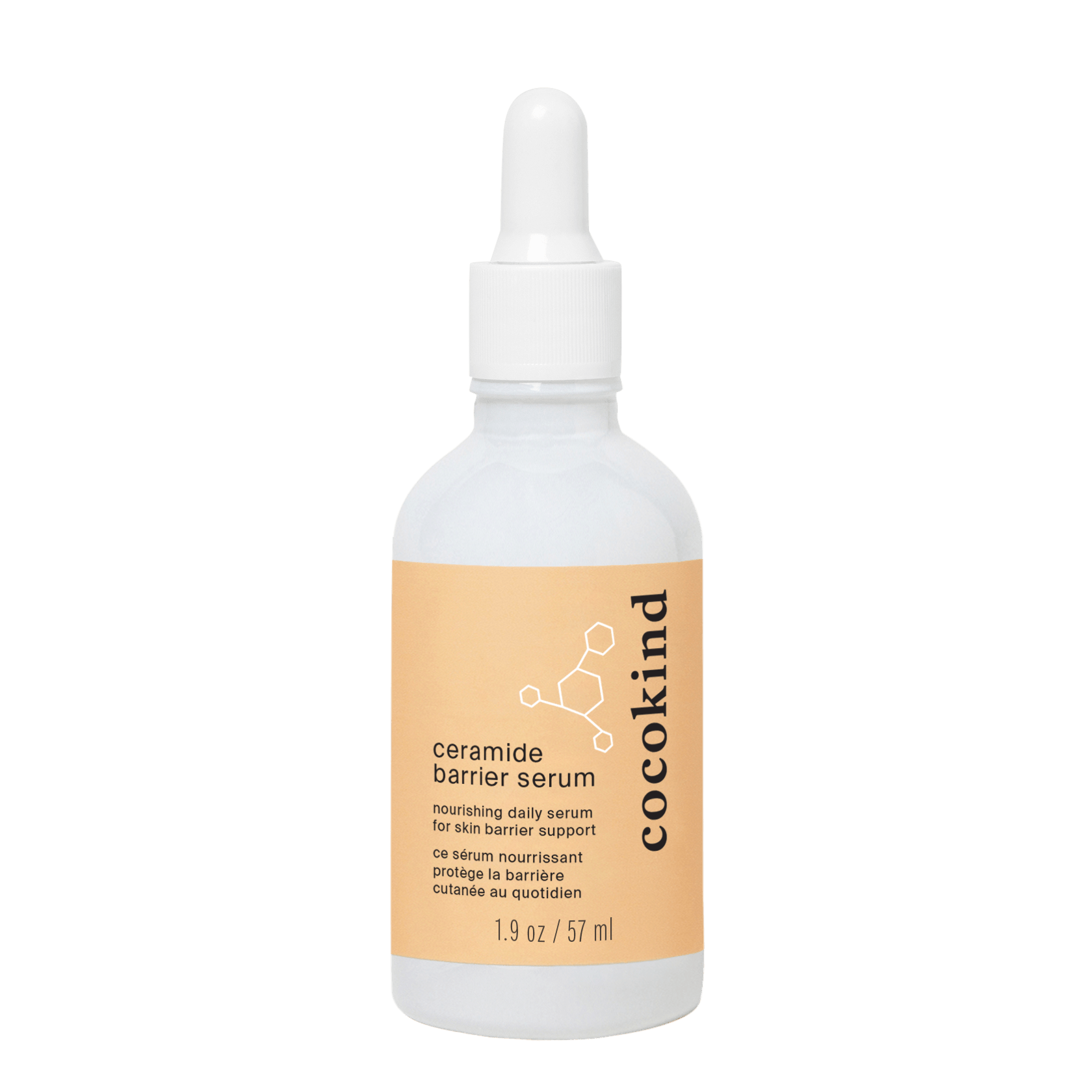formula facts
hero ingredients 21%
zinc oxide
emollients 26%
caprylic/capric triglyceride, coconut alkanes, coco-caprylate/caprate, lecithin, dipotassium glycyrrhizate, bisabolol
humectants 6%
glycerin, sucrose, glucose
emulsifiers 4%
coco-glucoside, cetearyl glucoside, caprylyl/capryl glucoside, polyhydroxystearic acid, polyglyceryl-3 polyricinoleate, isostearic acid, C10 alcohol, C8 alcohol
plant extracts 0.4%
phaeodactylum tricornutum (microalgae) extract, spirulina maxima (blue phytoplankton) extract, oryza sativa (rice) starch
carriers 28%
water, organic aloe barbadensis leaf juice
stabilizers 8%
cetearyl alcohol, tocopherol, xanthan gum, sodium phytate, sclerotium gum
occlusives 4%
argania spinosa kernel oil, organic helianthus annuus (sunflower) seed oil, organic butyrospermum parkii (shea) butter
preservatives 3%
glyceryl caprylate, tocopheryl acetate, caprylhydroxamic acid
sustainability
carbon emissions (CO2e) per use
12g
40 uses per 1.7 oz tube | 1 use = 1/4 tsp / 1.2g
- pre manufacturing . . . . . . . . . . . 9.9g
- production . . . . . . . . . . . 0.7g
- distribution . . . . . . . . . . . 1.3g
- end of life . . . . . . . . . . . 0.1g
How this relates to daily life
-

Coffee to go
600g / 8oz
-

Commuting alone
404g / mile
-

Cotton tshirt
4340g / shirt
-

Water bottle
358g / bottle
packaging
made with ethical labor
made in California
production
tube
materials: 40% sugarcane-derived LPDE 60% sugarcane-derived HDPE
recyclability 100%
cap
materials: virgin HDPE plastic
recyclability 0%
box
materials: FSC paper with soy ink and water-based coating
recyclability 100%
You may also like
Frequently asked questions
what’s the difference between physical and chemical sunscreens? and which kind is daily SPF?
physical sunscreens, also called mineral sunscreens, protect skin by absorbing and converting, as well as scattering/reflecting the UV rays. chemical sunscreens protect skin by absorbing UV rays and converting them into heat energy. our daily SPF is a physical sunscreen that uses nanoparticle-free zinc oxide as its sunscreen filter.
what do SPF, PA, and broad spectrum mean? what value does cocokind’s daily SPF have? Is it broad spectrum?
SPF stands for “sun protection factor” and it measures a sunscreen’s ability to protect against UVB rays. the SPF number tells you how long the sun’s UVB rays would take to darken your skin if you applied the sunscreen (as directed) compared with the amount of time without sunscreen. A broad spectrum sunscreen means it protects you from both UVA and UVB rays. PA is a sunscreen rating system often used in Asia and measures the level of protection against UVA rays. Our daily SPF is a broad spectrum sunscreen with a SPF rating of 32.
is this product reef safe?
unfortunately “reef safe” and “coral safe” are unregulated terms and research supports that both mineral and chemical sunscreen filters have some degree of effect on the ocean. we also encourage customers to utilize other sun protective measures to minimize impact on the ocean, such as wearing hats and UV protective clothing (these are the easiest way to avoid environmental impact)!
can the daily SPF also be used as a moisturizer?
we definitely still recommend applying a moisturizer before daily spf, because the product isn't formulated to replace a moisturizer in your routine.
can I use your sunscreen on my kids?
both the Silk SPF and Daily SPF were formulated to be gentle and clinically tested and dermatologist-reviewed to ensure they’re non-irritating. however, mineral SPFs are typically preferred by dermatologists for use on children, so we would recommend our Daily SPF. we still always recommend talking to your pediatrician and doing a patch test to ensure compatibility.
